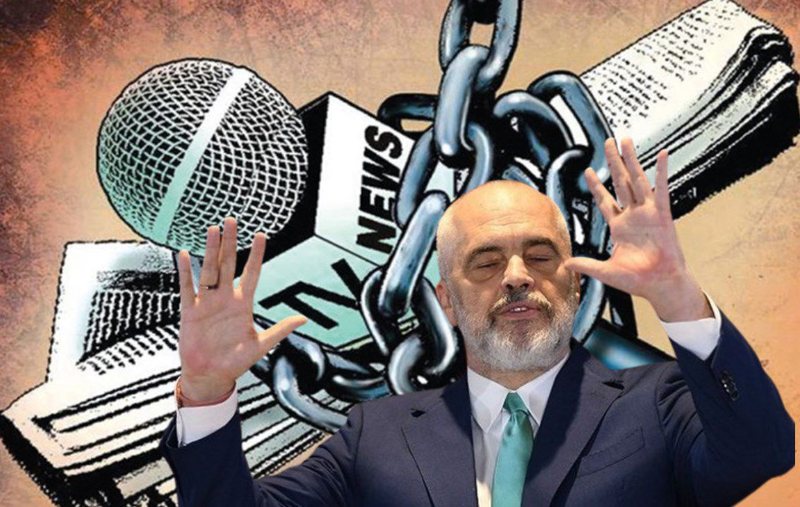
Media freedom in Albania, a serious challenge/ Journalists practice self-censorship due to pressures


Media freedom in Albania is facing serious challenges, according to the US Department of State's 2024 Human Rights Report , which documents the widespread practice of self-censorship by journalists and concrete cases of intimidation by authorities.
The official US report says that although the constitution provides for freedom of expression for members of the press and other media, journalists “often practice self-censorship to avoid violence and harassment or to secure employment.”
One of the most documented cases of 2024 occurred in March, when the Albanian Journalists' Union publicly condemned the prime minister for using "intimidating language" with a journalist who was investigating tourism investments in the country.
According to the US report, “several journalists reported receiving threatening communications or becoming victims of public smear campaigns after reporting on alleged government corruption or misrepresentation.”
The report says that independent media organizations and professional journalists claim that “the government, political parties, businesses, and criminal groups seek to influence the media in inappropriate and non-transparent ways.”
A worrying development, according to the US department, is the blackmail used by the media, mainly online.
"There are credible reports of senior media representatives using their outlets to blackmail businesses by threatening unfavorable media coverage," the report says.
Political pressure, corruption, and lack of funding limit the independence of print media, while the lack of enforceable employment contracts “reduces the independence of reporters and contributes to bias in reporting,” according to the report.
A significant problem that the report documents is the reduction in access to public information.
“Media outlets report that access to public information has continued to decline, and journalists find it increasingly difficult to obtain public documents and receive timely responses from public institutions to media inquiries,” the document states.
This situation also affects academic institutions, where “organizations report concerns about academic freedom, claiming that some public academic institutions elected or appointed leaders due to their political connections.
The report documents that “the government, political parties, and criminal groups use direct connections to media owners and senior editors to influence coverage.”
Political pressure, corruption, and lack of funding limit the independence of print media, while the lack of enforceable employment contracts “reduces the independence of reporters and contributes to bias in reporting,” according to the report.
The difficult situation for journalists is also reflected in the overall working conditions in the country. The report documents that “unions are generally weak and politicized” and that “the government does not effectively enforce the law.”
According to the Solidarity Center, which the report cites, “while the law provides full protection for workers to form and join unions, workers still fear retaliation and do not trust the justice system to enforce employment law.”
The US State Department's 2024 Human Rights Report on Albania concludes that “there were no significant changes in the human rights situation in Albania during the year,” but identifies “credible reports of serious restrictions on freedom of expression and media freedom, including self-censorship of journalists” as significant human rights issues.
The report documents that “the government, political parties, and criminal groups use direct connections to media owners and senior editors to influence coverage.”
Media organizations express concern that journalists “encounter significant obstacles in monitoring or reporting on the electoral process within institutions,” however, the report also mentions a positive development.
In April 2024, the parliament established an ad hoc committee on disinformation and “at its initial meetings the committee invited members of media organizations and non-profit organizations (NGOs) to participate and monitor the work of the committee.”
"The media and civil society saw these actions as a positive step towards protecting freedom of expression," the report says./ Shteg.org

The Ukraine summit that ignored the tough questions
ideas
top
Alfa recipes
TRENDING 
services
- POLICE129
- STREET POLICE126
- AMBULANCE112
- FIREFIGHTER128



























